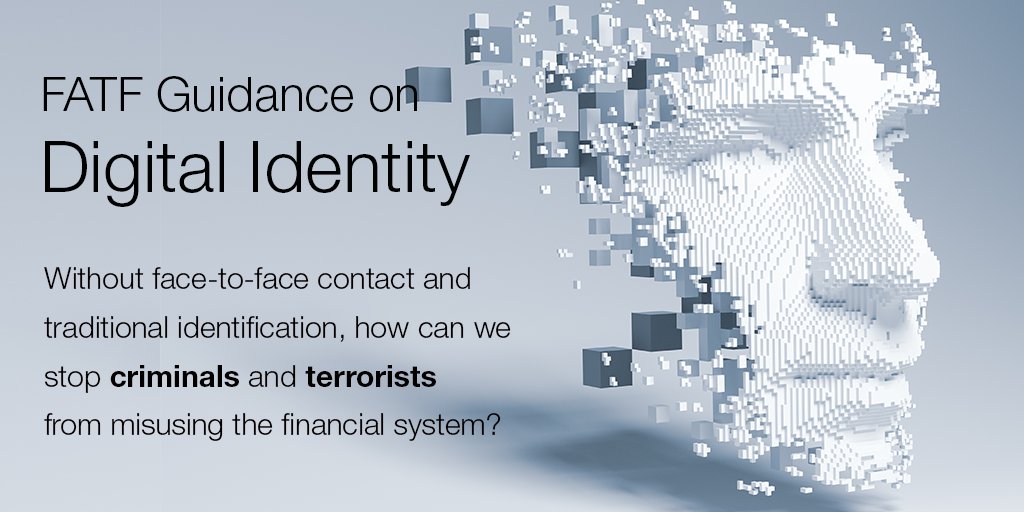
by John McCarthy Consulting Ltd. | Apr 20, 2020 | Blog, News
Cybercrime is not without victims and is taken extremely seriously by law enforcement.
Teenagers can drift into cyber-crime without realising the seriousness of their actions. In a timely video message from the UK National Crime Agency (NCA), parents are warned about the crimes teenagers can get involved in, especially during COVID-19 confinement.
The NCA have put together a series of online resources aimed at students/parents/guardians/carers and teachers. Coding, programming and computing are great skills to learn, but only if used safely.
The Garda Síochána have similar resources available at the Garda National Cyber Crime Bureau (GNCCB) website.
The Garda site also includes advice on the most common forms of money laundering during this Coronavirus era such as ransomware, spoof bank websites, Investment scams and CEO fraud, among several others.
Now is a good time to tighten up your AML procedures. For our latest 2020 Anti-Money Laundering Policies & Procedures Manual (retails for €150+VAT) see our online store here.
The Manual contains everything you need to successfully implement the requirements of the Criminal Justice (Money Laundering and Terrorist Financing) Acts, 2010 to 2018 and the Register of Beneficial Ownership.
Comes with a, free of charge, Excel spreadsheet called the ‘AML Control Sheet’ which firms may use to give a ‘helicopter’ view of progress made with keeping client AML data up to date.
Catch up on your AML CPD training here with webinars (all at €45 each and available on demand) on various AML topics like:

by John McCarthy Consulting Ltd. | Apr 7, 2020 | News
Many accountancy firms have now implemented WFH, some better than others, but even the better prepared ones are in uncharted territory.
We wrote two weeks ago that many accountants and their staff are on a steep learning curve discovering what it’s like to work from home. Now it’s time to revisit the question and see what particular firms are doing. Email and tell me what you are doing, in particular, at john@jmcc.ie. I would love to hear from you.
Ten Top Tips:
Here are our ten tips, based on research in the last two weeks, from our contact with accountants in practice. Here we go:
- Organise virtual coffee meetings, where at a certain point in the day, staff get together virtually, to chat as if they were at the office water fountain. This can include Team building – where Partners/Managers make a priority to have regular virtual conversations that are not always about work. Partners/Managers make time to check in on staff just to see how they are mentally and physically – we need our people in good shape when they return to office working;
- Separate work from home – for some, this could be the first time that they have worked in such an environment, one that will also have a unique level of anxiety and stress. As we said in our last blog, encourage them to avoid the trap of working longer hours and never really switching off when working from home; encourage staff to clear their work away to ensure client confidentiality and to take breaks between work time and home time;
- Keep communication lines open. There are video telephone tools like Zoom for external communications where participants can see each other and share screens, if necessary. A trusted practitioner contact of ours recommends Slack, as an internal communication tool where staff can keep in touch, share queries, video/audio calls. It’s really easy to set up and staff need no training at all in how to use it, as its so simple and intuitive;
- Encourage staff to help others around them in a safe way (e.g. deliver groceries to socially cocooned neighbours);
- Ensure physical security and confidentiality, taking account of the potential lack of document printing/shredding facilities at home. In some circumstances printing may not be possible, especially with younger members of staff living in shared accommodation;
- Mental and physical wellbeing – this is the most important of all. Your employees are the firm’s greatest asset. Encourage staff to maintain proper sleep patterns, take fresh-air breaks during the day (as much as is legally allowed) and stay active.See this short video (8.5 minutes) on mental health from the popular UK Accountex speaker, Nick Elston on his blog 5 ways to work from home and manage anxiety. Nick gives some essential and comforting tips on navigating this difficult situation. Check it out, here.
- IT – ensure everyone has the right equipment, their connections operate effectively and know how to log into the firm’s system in a secure fashion. Remind staff about the safe storage/destruction of any paper documents created at home;
- Create a second laptop screen at home with Duet for your IOS or Android devices – Thanks to Sean O’Rourke in Killarney for this tip;
- Business Continuity – Update the Practice Business Continuity Plan for the current environment and for likely developments over the next three, six, twelve and eighteen months ahead;
- Communication – Above all, clear and frequent communication is key to this process. Provide daily updates, with clear, relevant information and all necessary links to external websites and other sources of information. create a forum where staff can freely ask questions.
And finally you have to have a laugh sometimes – from my colleague Mark Lee Funny Tips for Accountants Working from Home.
We would love to hear your WFH stories, the things to do/avoid. Contact us at john@jmcc.ie or to set or to set up a 30 minute, no obligation, phone call, in my online calendar here.

by John McCarthy Consulting Ltd. | Mar 31, 2020 | Blog, News
Following the announcement by the Taoiseach, on the 27th March, all non-essential workers must stay at home and only travel for work if absolutely necessary. This means disruption to 31st March stocktake attendance by auditors.
It’s unclear how popular a 31st March period end is in Ireland. It tends to be more popular in the UK, due to its proximity to the end of the income tax year of 5 April, so UK auditors may have bigger headaches with this issue than Irish auditors.
However, if stocktake attendance does not affect you right now, it will inevitably affect stocktakes in the months to come, so be prepared and plan ahead.
Even if you can justify attendance at the stocktake as ‘essential’ work, there are likely to be problems as client staff struggle to get prepared on time to make the stocktake as effective as it usually is under ‘normal’ conditions, along with other logistical problems.
What can be done?
Let’s see what the standards say.
‘ISA (UK) 501 Audit Evidence – Specific Considerations for Selected Items’ requires the auditor to attend a stock take where stock is material. Paragraph 6 says:
‘If the auditor is unable to attend physical inventory counting due to unforeseen circumstances, the auditor shall make or observe some physical counts on an alternative date and perform audit procedures on intervening transactions.’
This presents a few different options for auditors to consider:
1.The client could consider extending their accounting period to later in the year, to say 30 June 2020 (assuming they have not already extended their accounting period in the last 5 years). This could be a once-off change, as the period could be shortened again back to 31 March 2021.
2. Keep the 31 March date, but rather than attending the stock count at the year end date, a stock count is performed later in the year and the numbers rolled back. The rolling back process involves additional procedures that must be carried out to obtain evidence about the movements between the count date and the year end. This is similar to the exercise that must happen whenever an auditor is appointed to a new audit client (that holds stocks) after the client’s period-end has passed. The roll-back is especially important where the client wants to help avoid a scope limitation modification in their audit report (e.g. to avoid breaching a bank covenant).
Perpetual stock systems with strong controls in place obviously make performing such procedures much easier. If the client is closed due to the coronavirus outbreak, the rollback procedures should be pretty easy, as there should be minimal inventory movement.
3. Where accompanying roll-back procedures cannot be performed at the post year-end stocktake, because the client’s records are unable to provide sufficient evidence over the existence of stock as at the year end, a qualified opinion is much more likely to arise from a limitation of scope.
This may present added difficulties as there may be implications under the Companies Act, 2014, to do with whether the company has maintained ‘adequate accounting records’ (stock records) under Section 282 Companies Act, 2014, thus triggering an additional audit qualification on this topic, and additional reporting to the ODCE under Section 286 Companies Act, 2014.
4. Depending on the nature of the client’s stock and whether anybody is actually working at the warehouse, the use of video calling (e.g. Zoom, Skype or Facetime) or the hire of a drone (check with Damian Heslin at Drone Works Ireland in Galway) could be considered, to provide some additional level of audit assurance. Drones could also be used to check on the physical existence of buildings, forestry, livestock etc.
Good sources of guidance on this topic are available on the various audit issues surrounding the coronavirus:
- Auditing implications of the coronavirus at this link @ Chartered Accountants Ireland
- FAQs for auditors regarding coronavirus at this link @ Chartered Accountants Ireland
- The limitation of audit scope at the Institute of Chartered Accountants in England & Wales ICAEW. The latter site gives useful information for general guidance though they contain references to UK company legislation.

by John McCarthy Consulting Ltd. | Mar 27, 2020 | Blog, News
Many accountants and their staff are on a steep learning curve discovering what it’s like to work from home.
I started working from home (WFH) eleven years ago, which seems like a lifetime ago now. It took some getting used to, from IT issues to challenges around time management and work/life balance.
For those of you who are adjusting to WFH for the first time, here are some concrete tips that have served me well over the years.
- Get up early – Clear your head and get ready for the day; get outside for exercise; have a healthy breakfast; limit caffeine intake;
- Start on time – Don’t dawdle. Get dressed for business. Start as you would if you were in the office. Pyjamas don’t generally instil alertness;
- Take proper breaks during the day in the fresh air (this replaces the chats at the coffee station/water cooler) – maintain your physical distance;
- Take a proper lunch break – don’t eat at your desk, like you probably did at the office;
- Children – for those juggling childcare/home-schooling responsibilities, parents can take turns alternating between three-hour time slots for working/child supervision;
- Before you stop for the day, prioritise a to do list of the next day’s tasks and split them between urgent, important and less urgent, less important;
- Stop on time – close the laptop, go for a walk out of the house to mimic the journey from home that you used to do and make a proper break with your working day.
Thanks to my reliable Brother printer/copier/scanner, I have eliminated practically all paper-based client data. Scanning makes it much faster to locate client and research documentation and speeds overall response efficiency when juggling technical questions.
Data is now securely stored in encrypted hard drives and on two separate secure cloud storage portals. All laptops are also encrypted.
The main types of technology that help make my work-life a lot easier include:
- Business IT Solutions (BITS) which are headquartered in Kilkenny, but with offices in Dublin and Carlow. They have many accountancy firms as clients and have provided me with a very reliable technology back-up service. It includes reliable remote online support. I have been using BITS since August 2017 and would highly recommend them.
- Sharefile is a very reliable file sharing site. I initially chose it to cope with the GDPR in early 2018, but now it’s coming into its own, for sharing reports and documents with clients on a secure cloud storage location based in Dublin. I also use it for sharing training materials with course delegates which they may save to their laptops.
- More online meetings are happening now and Zoom seems to be the most popular product. I have used it successfully and its share price is certainly sky rocketing.
We will be publishing more COVID-19 assistance tips for our readers next week. Watch our regular Practice Makes Perfect blog on Tuesday March 31st.

by John McCarthy Consulting Ltd. | Mar 10, 2020 | Blog, News
According to the Financial Action Task Force (FATF), digital payments are growing at an estimated 12.7% annually and are forecast to reach 726 billion transactions annually by 2020. Within the next two years, an estimated 60% of world GDP will be digitalised.
As we mentioned in last week’s blog, the FATF recently issued a guidance paper on digital identity. It focuses on the identification of individuals (natural persons) and does not cover the identification of legal persons.
For the FATF, the growth in digital financial transactions requires a better understanding of how individuals are being identified and verified in the world of digital financial services. Digital identity (ID) technologies are evolving rapidly, giving rise to a variety of digital ID systems.
Proof of official identity generally depends on some form of government-provided or issued registration, documentation or certification. Examples include a birth certificate, identity card or digital ID credential) that constitutes evidence of core identifiers or attributes (e.g., name, date and place of birth) for establishing and verifying official identity. The guidance is trying to develop methodologies of making these methods more foolproof and secure on a worldwide basis.
In order to keep our publications as up to date as possible we have just published an update to our popular AML Policies Controls & Procedures Manual, which is now available to purchase for €150+VAT on our website at this link.
The Manual contains everything you need to successfully implement the requirements of the Criminal Justice (Money Laundering and Terrorist Financing) Acts, 2010 to 2018 and the Register of Beneficial Ownership.
Comes with a, free of charge, Excel spreadsheet called the ‘AML Control Sheet’ which firms may use to give a ‘helicopter’ view of progress made with keeping client AML data up to date.

by John McCarthy Consulting Ltd. | Feb 27, 2020 | Blog, News
We have just published an update to the AML Policies Controls & Procedures Manual last week, which is available to purchase now on our website. Our latest February 2020 edition includes the following updated items:
- Pronouncement by the FATF arising from their Public Consultation on FATF Draft Guidance on Digital Identity (discussed at the FATF plenary meeting in Paris from 19-21 February 2020)
- The latest developments on the RBO register since June 2019
- Further guidance on carrying out electronic searches and the validity of sourcing electronic data for client identity purposes.
This Manual contains everything you need to successfully implement the requirements of the Criminal Justice (Money Laundering and Terrorist Financing) Acts, 2010 to 2018 which became law on 26 November 2018 and the Register of Beneficial Ownership which came into effect on 22 June 2019.
This Manual comes with a, free of charge, Excel spreadsheet called the ‘AML Control Sheet’ which firms may use to give a ‘helicopter’ view of progress made with keeping client AML data up to date.
The Manual includes eleven Appendices with templates/guidance on how to implement the legislation efficiently. It retails for only €150+VAT and may be downloaded, ready to use, in Word format.










